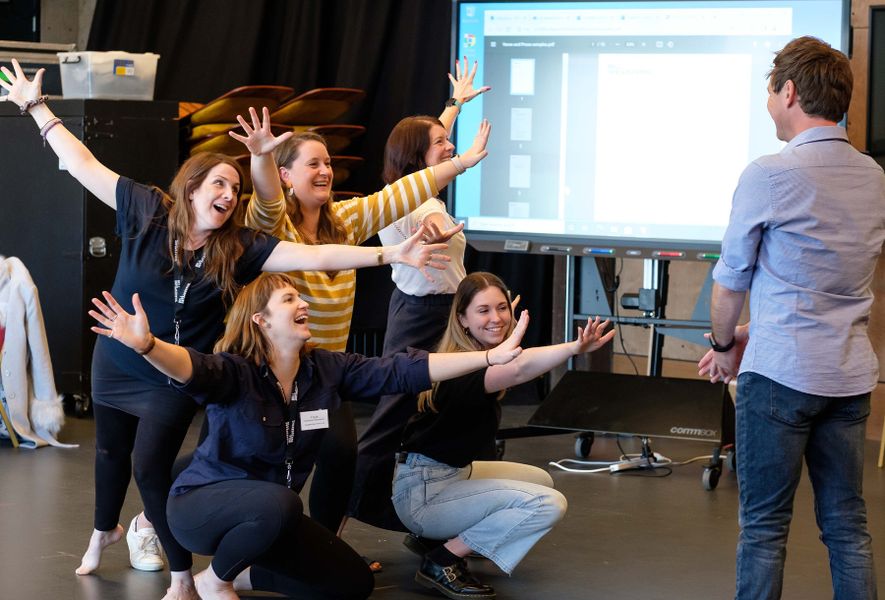
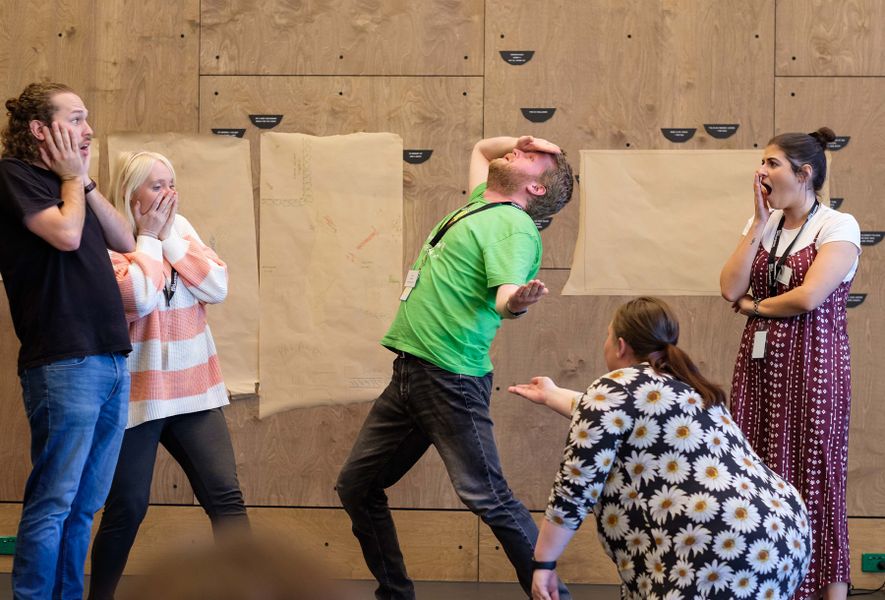
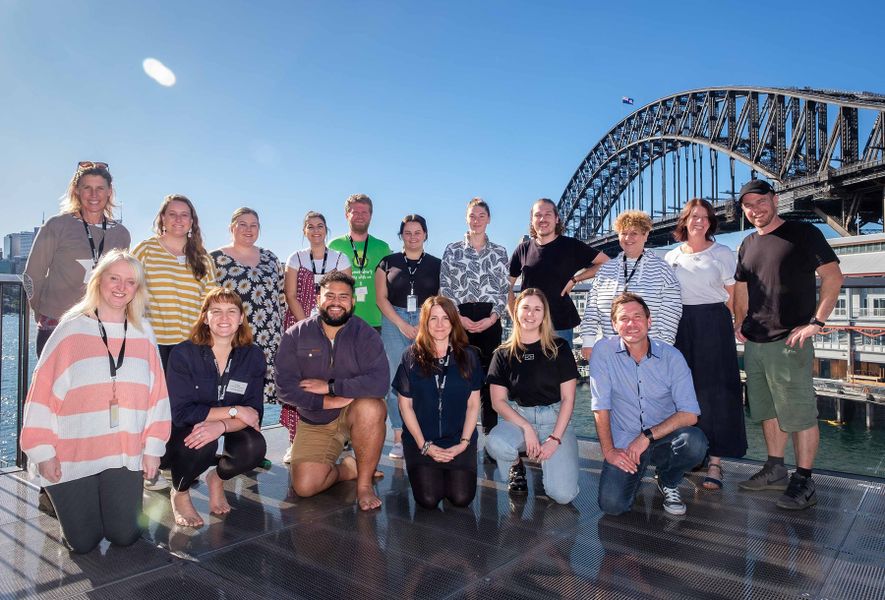
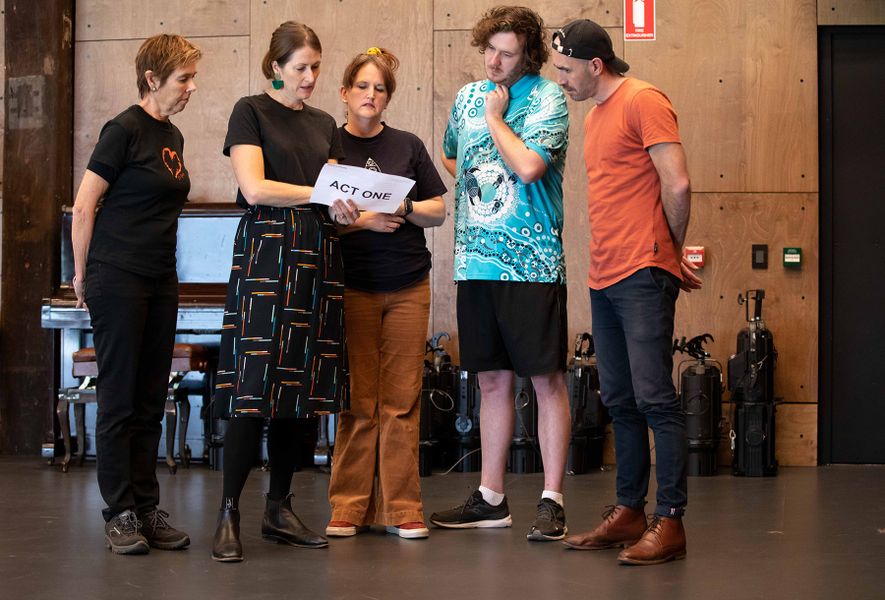
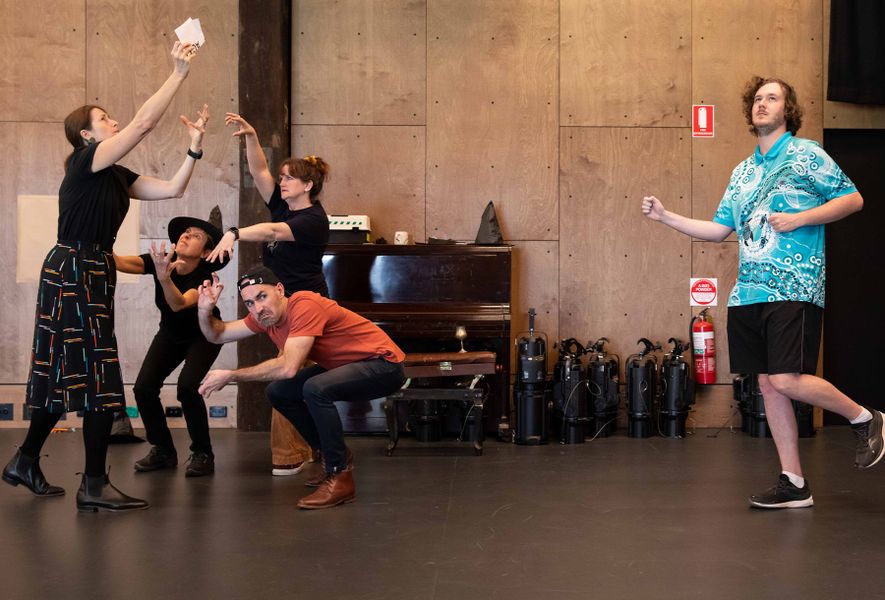
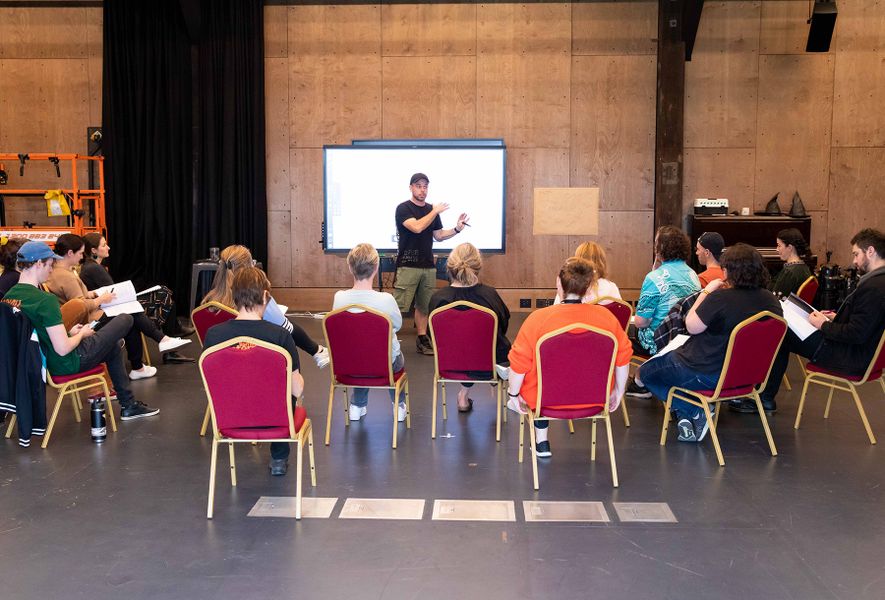
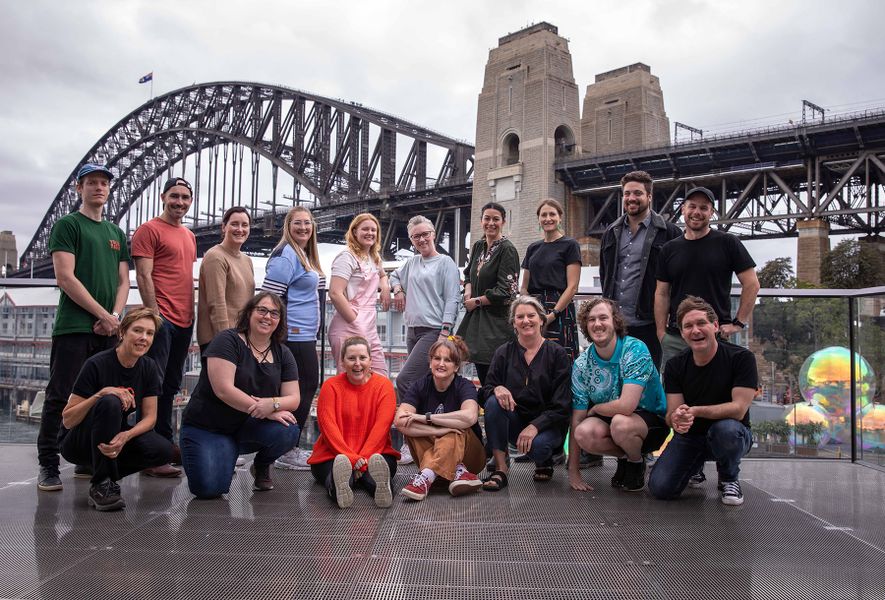
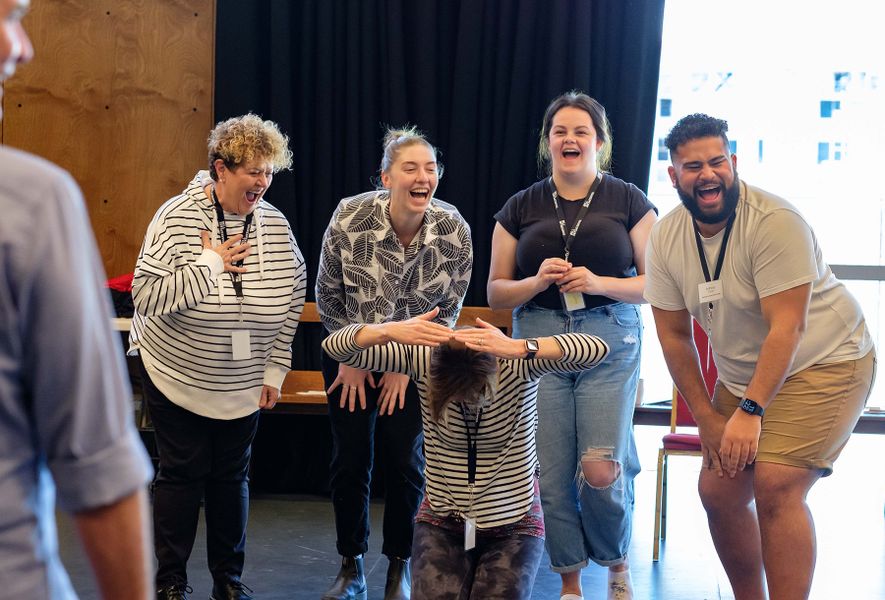

Inside Bell Shakespeare’s Regional Teacher Mentorship

Poetry was in the air and emotions were high.
It was early 2018, and a small group of teachers from around the country found themselves in Sydney, learning about Shakespeare and discovering new insights into their craft. They were there as part of a Bell Shakespeare initiative designed to encourage teachers to reflect on their practice and reignite their passion for education.
One of those teachers, Kathy Macdonald, had travelled down south from the Far North Queensland community of Tully. Kathy figured, with good reason, that she knew quite a bit about Shakespeare, having immersed herself in his world for years, a passion that had even taken her once to his birthplace in Stratford-upon-Avon. And she had been a teacher for more than three decades, most of that time at Tully State High School. Her peerless work in supporting curriculum and pedagogy across the region had been recognised the previous year with the Peter Botsman Award for excellence in English education. So she could be forgiven for thinking that she knew a bit about teaching too.
But then, after several days of activity, working with other teachers and with the Bell Shakespeare team, exhausted but elated, she started to think differently about the potential for student engagement in the classroom.
“It was amazing, life-changing,” she says of the program.
It was also hard work. As Kathy recalls, the program was both physically and mentally intense. But she loved it. “It was fabulously intense,” she says. “So intense that on the last night I was moved to write a sonnet of thanks.”
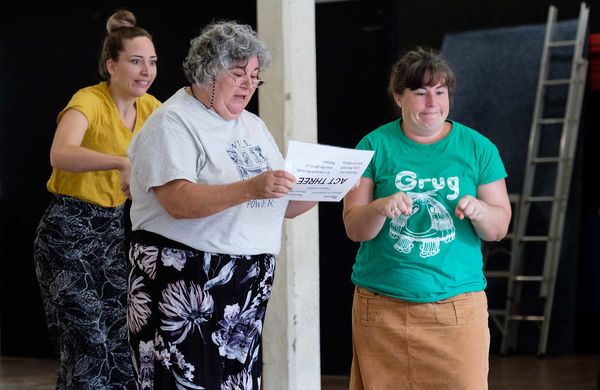
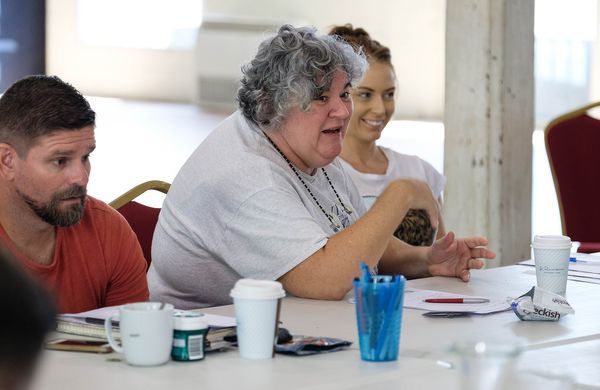
A sonnet of thanks? Why not? Kathy put her pen to paper on the night before the last day and then read the results to her colleagues the following morning.
With Thanks
The Bard his treasure gave to us in spades
But we to teach our students needed more;
So Huw, Teresa with gems came to our aid
Tableaux, Go To, some games to make us roar.
With Image Garden, thoughts we could distil,
Through limping text we meaning mining went.
The arcs of plot and mood had forced our will,
‘Til by the arv’ we found ourselves full spent.
The show of Kingdoms won and lost was great.
So now there’s just the planning to be done.
It’s back to school; you know we cannot wait.
It’s thanks to you our understanding’s won!
It’s time we put this poem of mine to bed,
To take the love contagion to be spread.
Established in 2016, Bell Shakespeare’s Regional Teacher Mentorship is one of the great success stories of the arts and contemporary education in Australia. An earlier version dates back to 2007, when 12 teachers were invited to take part. Then following an increased grant from the federal government and a commitment of support from Teachers Mutual Bank, the company expanded the program into a model that now welcomes 30 teachers each year.
Joanna Erskine, Head of Education at Bell Shakespeare, says the program provides teachers with new, innovative approaches to both Shakespeare and teaching in general that can be taken straight into the classroom. “Then what they discover,” she says, “is that these techniques can be applied across whatever they teach, not just Shakespeare. We’re constantly hearing teachers saying this has transformed their teaching practice.”
The Regional Teacher Mentorship involves a competitive selection process, with teachers applying from regional schools across all parts of the continent. They submit a statement of intent, addressing their specific challenges, and spelling out how the mentorship would benefit both them and their community. Support from their Principal is vital as well.
Once selected, the teachers travel to Sydney for four days of intensive training at Bell Shakespeare HQ. The program is practical at its core: the teachers are constantly on their feet, learning innovative strategies to use in the classroom. Active learning, in other words.
Bell Shakespeare treats the teachers as students, encouraging them to remember what it’s like to be a student and to have fun while doing so. Soon the enthusiasm is infectious.
The feedback from teachers has been overwhelming. Not only has the program reignited their love of Shakespeare, but it has reignited their love of teaching as well. Consider some recent testimonials:








The teachers also use the opportunity to network with other teachers. Bell Shakespeare likes to mix up the group in terms of experience. This means that some of them are just starting out in their careers, while others, like Kathy Macdonald, have been teaching for some time.
The teachers pair up with a teaching artist from Bell Shakespeare throughout the process. And while the program lasts four days, the relationship extends well into the future. The company has an open-door policy with its teachers, and the conversation continues between them and also between the teachers who have taken part.
Participants have set up a Facebook group that they use to stay in touch and compare experiences. Two teachers from the Queensland town of Charters Towers, for instance, had never actually met, but used the occasion to plan an ambitious Romeo and Juliet collaboration between their schools. As Erskine explains: “We’ve got years and years of teachers in these Facebook groups who are still active and connecting with each other. We faciliate that as well.”
The pandemic has complicated the picture in recent months. Like all of us, the company has done its best to pivot online—much to the relief of one teacher on Christmas Island, who had been greatly looking forward to taking part in-person.
Teachers come to Sydney from all states and territories, including those whose schools are situated in remote Aboriginal communities, mining towns, farming towns, as well as institutions with high numbers of refugee populations or students with disabilities.
Bell Shakespeare is aware that teaching in some of these communities can be tough. Teaching anywhere carries its own set of challenges, of course—which is why the program is designed to nurture these teachers and to help them think again about what they do. Most of the participants are English teachers, even if the physicality of the program, putting them outside their comfort zones, brings to mind discipline of the drama teacher. “The teachers go through the same experience as their students,” Erskine says. “We’re constantly having breakthroughs. Every year we have teachers who are uncomfortable but who come out the other side and learn something about themselves.”
Kathy Macdonald recalls a room that had been transformed within a remarkably short period of time.
“Sometimes teachers can be quite guarded in professional development situations,” she says, “but the teaching artists were able to get this disparate group of people to be vulnerable within the first hour or so. I just thought: ‘you guys are magic.’”
At the end of the program, the participating teachers are invited to watch a performance of the latest Bell Shakespeare production in Sydney. Kathy doesn’t need reminding about what she saw in autumn 2018: it was Antony and Cleopatra, starring Catherine McClements and Johnny Carr. Another highlight of her time in Sydney? A trip to the State Library of NSW to inspect a First Folio. “We were all enthralled, watching and listening to the pages turning.”
Back home, Kathy put her new knowledge into practice at once. Her understanding of Shakespeare had been transformed: she had known about iambic pentameter, for example, but it wasn’t until she worked with Bell Shakespeare that she truly grasped the nuances of implied stage directions, the way meter can be used to different effects and so on. “It’s just a whole other layer of understanding I didn’t have beforehand.”
She had always been a physical teacher, so the Sydney workshop reinforced that part of her approach. But as well as new insights into the texts, the program also gave her a theoretical framework, an intellectual foundation, to support the basis of active learning even further.
“I had already been doing it in my career at a surface level,” she says “but this allowed me to go so much deeper.”
Then came her own role as a mentor, which in fact was one of the reasons she had applied to the program in the first place. Flushed with ideas from Bell Shakespeare, Kathy took it upon herself to share her insights with other teachers across Queensland. She has now spent more than two years driving up and down the coast, spreading the word, all while also attending to her many educational responsibilities at home. A form of cultural evangelism, so far she has taught more than a hundred teachers at schools including Cairns, Innisfail, Atherton, Townsville and Brisbane.
She also reports to being “very, very pleased” with her students’ examination results in English following her return from the Regional Teacher Mentorship. All in all, a wonderfully successful experience, and one that continues to inspire both students and teachers alike.
“When I got to Sydney, Jeez Louise, I thought I knew a lot,” she says. “But I learned so much. It was fabulous.”
Writer: Ashleigh Wilson
The Regional Teacher Mentorship is made possible thanks to the generous support of the Australian Government, and Teachers Mutual Bank, our valued Regional Teacher Mentorship Partner.
Bell Shakespeare and Teachers Mutual Bank recently celebrated five years of partnership by collaborating on a series of videos featuring past Regional Teacher Mentorship participants, highlighting the positive impact the RTM has had on their teaching, their students and their wider communities. Watch the videos here.